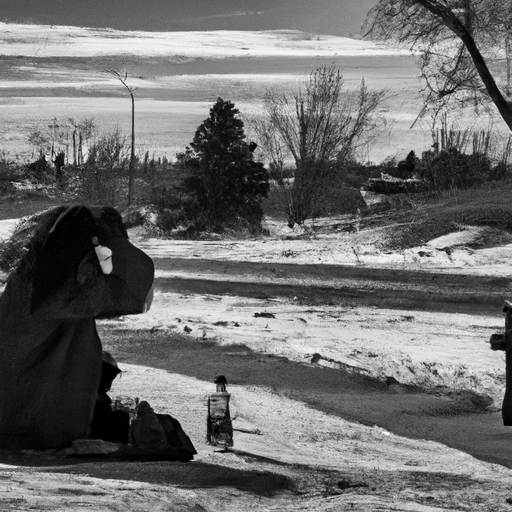Saskatchewan Government Suspends Policy Resricting Benefits for Individuals Collecting Treaty Settlements Amidst Canadian Opioid Crisis
The Canadian opioid crisis has impacted communities across the country, but the province of Saskatchewan has seen particularly dire consequences. Community and civic leaders, as well as citizens, have searched for solutions to alleviate the devastating results of this public health emergency. Recently, a policy shift in Saskatchewan has thrown a spotlight on the ways government policies can either exacerbate or alleviate social issues in the midst of crisis. For a more in-depth review, you may refer to the source.
Effects of the opioid crisis on individuals and communities
As with other regions globally, individuals in Saskatchewan wrestling with opioid addiction often face multiple challenges that include unemployment, homelessness, and criminal activity. There is a significant rise in crime rate related to opioid usage. In addition, homelessness has inclined, as individuals dealing with addiction often lose their ability to maintain consistent employment or stable housing. Furthermore, the opioid crisis has put a strain on the healthcare system, with many emergency departments reporting an influx of overdose cases.
The initial policy: a point of contention
In an unfortunate combination of bureaucracy and crisis, individuals in Saskatchewan receiving treaty land entitlement settlements initially found themselves ineligible for income assistance benefits, adding insult to injury for a vulnerable population in the midst of the opioid crisis. This policy generated considerable contention and controversy given its seeming reinforcement of inequity in an already beleaguered population.
Policy Suspension: A Respite for Treaty Settlements Recipients
The recent suspension of this policy means that individuals receiving treaty settlements are now eligible for income assistance benefits. This change can potentially serve as a lifeline for those grappling with opioid addiction by providing them with a financial safety net. It underscores the necessity of removing systemic barriers that prevent individuals from accessing the help they need, especially in a public health emergency such as the opioid crisis.
Efforts to combat the opioid crisis
Along with policy shifts, efforts to combat the opioid crisis in Saskatchewan have included launching a provincial opioid-substitution program, increasing the availability of naloxone kits, a life-saving opioid overdose reversal drug, and funding initiatives to increase mental health and addiction services.
Key Points
- Canada is grappling with a severe opioid crisis that has led to an increase in homelessness and crime rates.
- In Saskatchewan, a policy once denied income assistance benefits to recipients of treaty land entitlement settlements. This policy has now been suspended, potentially easing financial pressure on these individuals, many of whom are dealing with opioid addiction.
- The Saskatchewan government is taking steps to combat the opioid crisis by implementing substitution programs, increasing the availability of naloxone kits, and funding mental health and addiction services.
Synthesis and Conclusions
Policies, such as the one previously in place in Saskatchewan, can inadvertently compound the challenges faced by those experiencing an opioid crisis. For individuals already dealing with joblessness, homelessness, and addiction, denying income support adds another layer of difficulty as they seek ways out of their dire situation.
The issue isn’t just about the specific policy in Saskatchewan cutting benefits for individuals receiving treaty settlements. Rather, it signals a deeper question about how government policies can either ease or contribute to the revolving array of problems faced by those struggling with opioids. Importantly though, this suspension presents an opportunity for those grappling with addiction to get back on their feet, showing a possible directional shift towards solutions that target root causes rather than brushing over symptoms.
Furthermore, the increased availability of naloxone kits and more funding towards mental health and addiction services are promising steps towards mitigating the effects of the opioid crisis. There is still much to be done, but these are steps in the right direction. It is paramount to recognize that society’s most vulnerable require our collective support – our approaches to handling the opioid crisis should reflect this.
Therefore, open dialogue between government, civic leaders, and the community is highly crucial to address these impacts and potential solutions effectively. By actively seeking to improve policies and provide much-needed subsidies, we can begin to alleviate the hardships faced by individuals caught in the throes of the Canadian opioid crisis. After all, it is in unity that we can find strength and hope amidst crises.
